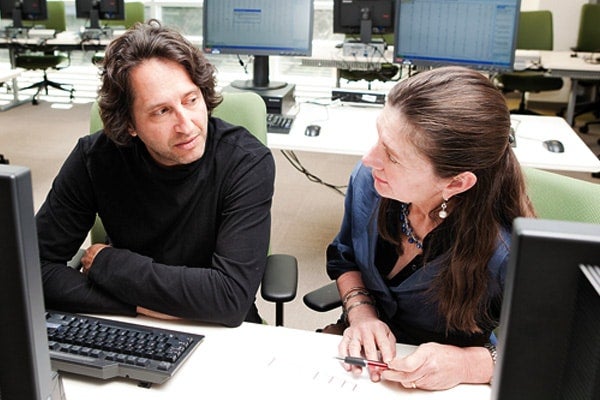
U of T helps province evaluate child welfare system
Published: October 4, 2011
Between 1993 and 2003, the number of confirmed cases of child maltreatment in Ontario nearly tripled. "The province, however, doesn't have a viable information system," said Aron Shlonsky, Factor-Inwentash Chair in Child Welfare at U of T's Factor-Inwentash Faculty of Social Work. "We're unable to tell the story of how children and families make their way through the foster care system, making it difficult to improve services."
To address this need, Shlonsky is helping develop the Ontario Child Abuse and Neglect Data System (OCANDS). "The database will enable agencies to more effectively manage and deliver services for our most vulnerable children," said Shlonsky, who also co-chairs the Social Welfare Group of the Campbell Collaboration, an international organization developing a world library of systematic reviews.
The Factor-Inwentash Faculty of Social Work is about to boost its international reputation as a hub of child welfare research. When Shlonsky and his team complete the data system in 2014, it will be Canada's first longitudinal research database of child maltreatment services. "We are also building a laboratory that will house this and other key child welfare databases. Once it is built, the lab and databases will generate timely and relevant evidence used to inform and guide policy makers and practitioners from across Ontario as they contend with the multiple complex challenges faced by maltreated children."
Shlonsky believes partnership is key to creating effective social work research that can be applied to practice. That's why he is collaborating with several top child welfare scholars and Ontario's children's aid societies. "The partnership approach to research is necessary for the field of social work. While scholarship for its own sake has its merits, social work research should generate the type of information that can be readily used to improve lives."
His research partners agree and praise Shlonsky for his collaborative approach.
"Aron builds sustainable research bridges between academia and the field, funders and community partners," said Deborah Goodman (pictured above), manager of research and program evaluation at the Toronto Children's Aid Society.
Shlonsky worked with Goodman and others to evaluate the Ontario Risk Assessment Model (ORAM) that the province's social workers were using. Such tools are intended to pinpoint elements in a family's story that alert social workers to the likelihood that a child will continue to be victimized. "Our analysis found the tool to be neither reliable nor valid in predicting which children will be re-abused," said Goodman, who is also an adjunct assistant U of T social work professor. "The Ministry of Children and Youth Services ceased using ORAM based on our research, as well as field experience."
Now Shlonsky and his partners are using that knowledge to build a better tool. "It's a complex project," he said. "And that's how partnership plays a valuable role. The more expertise on an initiative like this, the more likely we are to design a database that will have a truly positive impact on the children and families we serve."
This story first appeared in Edge Magazine.



